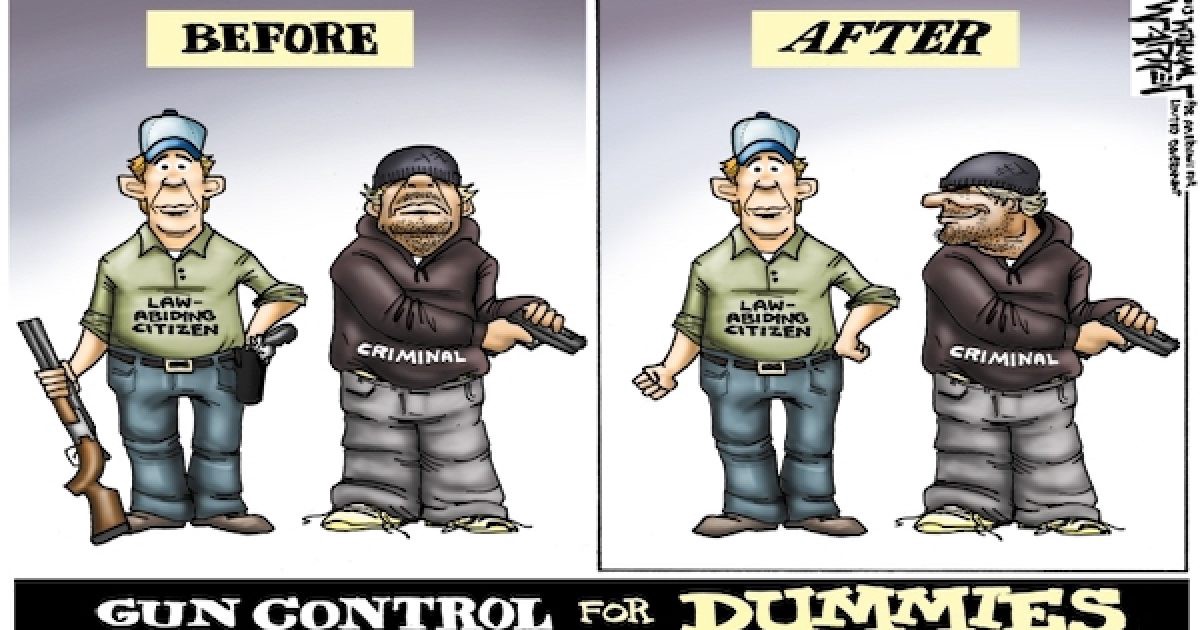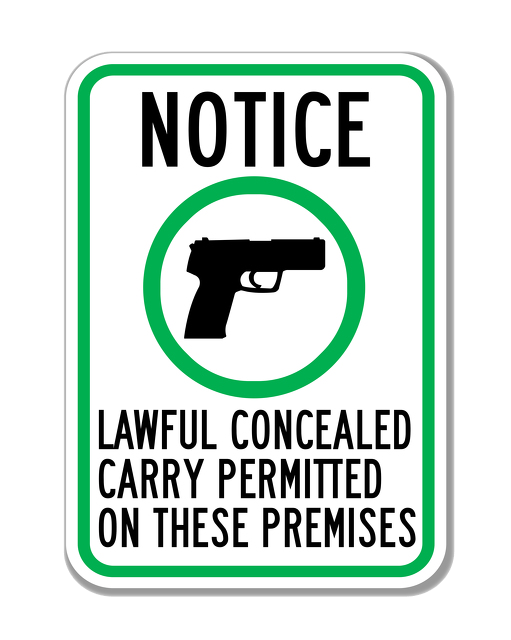We were in a line headed straight for a metal detector (it wasn’t the airport so relax). I decided I would quickly search online for that state’s weapon ordinances (in hindsight it would’ve been a bit easier for me to do this in advance, hence this article). In that quick search, I discovered that my knife (again, a small pocket knife) was not legal to have in my possession.
Needless to say, I was nervous. Like sweating bullets nervous. I won’t detail how the story ends, I’ll only say that a little quick thinking by me allowed for cooler heads to prevail and everything turned out okay. But it just as easily could’ve turned out terribly. And that’s what I want readers to consider. If you’re going to carry a weapon on your person (even a small pocket knife), make sure you know the laws of the state in which you’re traveling before you do it.
I’m going to provide an overview and a couple of quick tips based on the current CCW laws of specific states. For each of the following examples, there are many potential exemptions to specific statutes, including LEO/military status, type of work, previous criminal history, etc. Because of that, any examples provided are only referring to people who aren’t felons or dishonorably discharged veterans, ruled mentally incompetent, etc., and are not banned from carrying firearms under federal law.

Key Points of CCW Laws
There are a handful of main things to consider regarding CCW in each state. These are:
- Weapon/magazine allowances
- Reciprocity
- Blade-length (knife)
- “Shall-inform” state; or not
- Specific city ordinances within a state (think Chicago)
- Places that are almost always “Gun-Free” zones
Weapon/Magazine Allowances
Some states (like Missouri) don’t restrict weapons/magazine allowances. One could carry a five-shot revolver or a 20-round semi-automatic on their person. Other states (like New York) restrict what weapon one can carry, how many rounds that weapon can hold, and even how one has to transport the weapon through the state. The website www.handgunlaw.us says the following about this:
“The best way to travel through NY or any state that has restriction is to carry a copy of Title 18-Part 1- Chapter 44 926A of the federal code with you. Some law enforcement may not know the law. DO keep the firearm in a locked box. Keep ammo in another locked box. No ammo in magazines or speed loaders in the trunk or if no trunk as far back in the vehicle as possible in a locked box. By NY Law if you are traveling across the state and can legally possess the firearm where you started and where you are going you can transport it as above. But if you stop in NY and spend the night in a motel/hotel/camp ground etc. you are in violation of NY law and can be arrested if found with a firearm. Stopping for gas and food would most likely be OK but this is not a given in NY.”
This shows just how important knowing the individual state laws is.
Reciprocity
“Reciprocity simply means your concealed carry permit or license is valid beyond just your issuing state; the rights between states are reciprocated.”
When you receive a CCW permit, you’ll learn which states reciprocate your state’s CCW permit. Then, you can legally carry concealed in that state as though it were your own; but, you have to refer to the state you are in for its specific concealed carry laws. Generally speaking, though, you can carry concealed in reciprocal states.
Edged Weapons
Next is the often overlooked (pointing at myself right now) regulation for blade length and possession of edged weapons. Some states (again, like Missouri) have a regulation that concealed blades must be less than four inches in length and cannot be daggers, switchblades, etc. A “normal” tactical folding knife or Swiss Army pocket knife that is under four inches is perfectly legal to both carry and conceal.
Other states (like Connecticut or Nevada), however, have vastly different laws regarding edged weapons. For example, Connecticut is a bit more lax on knife laws than Missouri. Connecticut allows for, “One-and-a-half inch maximum blade length for ‘automatic’ or ‘switchblade’ type knives. Four inches in length of edged portion of a blade of knife that can be legally carried,” according to the American Knife and Tool Institute (AKTI).
The allowance for any type of knife with an automatic blade means CT is less restrictive than Missouri.
Nevada, however, is in line with many other states’ knife laws. That is, except for Clark County. AKTI states of Clark County:
“It is unlawful, within the unincorporated area of Clark County, for any person to carry upon his person a concealed weapon, not permitted in accordance with state law, of any description, including a knife with a blade of three inches or more, capable of being concealed, without first having received written permission therefor from the sheriff. (Ord. 242 § 18, 1965) (Ord. No. 4332, § 7, 10-12-2015) (Note that Las Vegas is in Clark County, however, Las Vegas is an incorporated municipality.)”
One could legally carry a knife in Nevada until he/she enters Clark County, at which point the individual would potentially be liable for unlawful weapon possession. Many states have these caveats.
So, it can easily be seen that state laws can be less strict than county or municipal laws. This is something you should consider when carrying both firearms and knives.
County/City Ordinances vs. State Law
As shown above, you have to consider specific city/county ordinances within states that otherwise allow carrying weapons. For example, even someone with an Illinois CCW could surprisingly find themselves in trouble if traveling inside the city limits of Chicago, if the laws inside the city are stricter than those in the state. These laws change almost yearly, so always check the local laws before traveling.
“Shall-inform” States
The next item to consider is whether the state you are currently in is a “shall-inform” state or not. If it is, you are mandated to inform the officer that you are carrying a concealed weapon upon first contact. If it isn’t, you aren’t. Pretty simple, but it has some major repercussions if not followed.
Texas, for example, is a “shall-inform” state. If you are traveling through Texas from Missouri (and your CCW is legally reciprocated from state to state) and you are pulled over for speeding, then you are required to inform the officer that you have a firearm on your person (which you are not required to do in Missouri). This simple oversight could cause you a significant legal headache if you aren’t careful.
Gun-Free Zones
Another factor to consider is places that are gun-free zones in almost every jurisdiction and state. These places include (but aren’t limited to) courthouses, jails, schools, and federal buildings. Save yourself the headache — or worse — and don’t bother carrying at any of these locations.
LEARN the Law Before You Go, Not AFTER Your Arrest!
To wrap this up, the most important thing to consider when carrying concealed is knowing the gun and knife laws in the state(s) in which you plan to travel. Don’t rely on hearsay or past knowledge because laws routinely change and ultimately it’ll be you who bears the responsibility of listening to bad or outdated advice. If you so desire, use your Second Amendment Right and enjoy your freedoms. Just be careful… one slip up and that freedom won’t be yours any longer.
I’d also recommend that you refer directly to your individual state’s Concealed-carry Permit requirements for specific information.
Below are a few helpful links. As always, ensure the information is accurate and up-to-date before taking any of this (definitely not official) advice.
- https://handgunlaw.us
- https://www.usconcealedcarry.com
If you have any stories of CCW hiccups or close calls, let me know in the comments below! I’m interested to see what you all have experienced!










COMMENTS